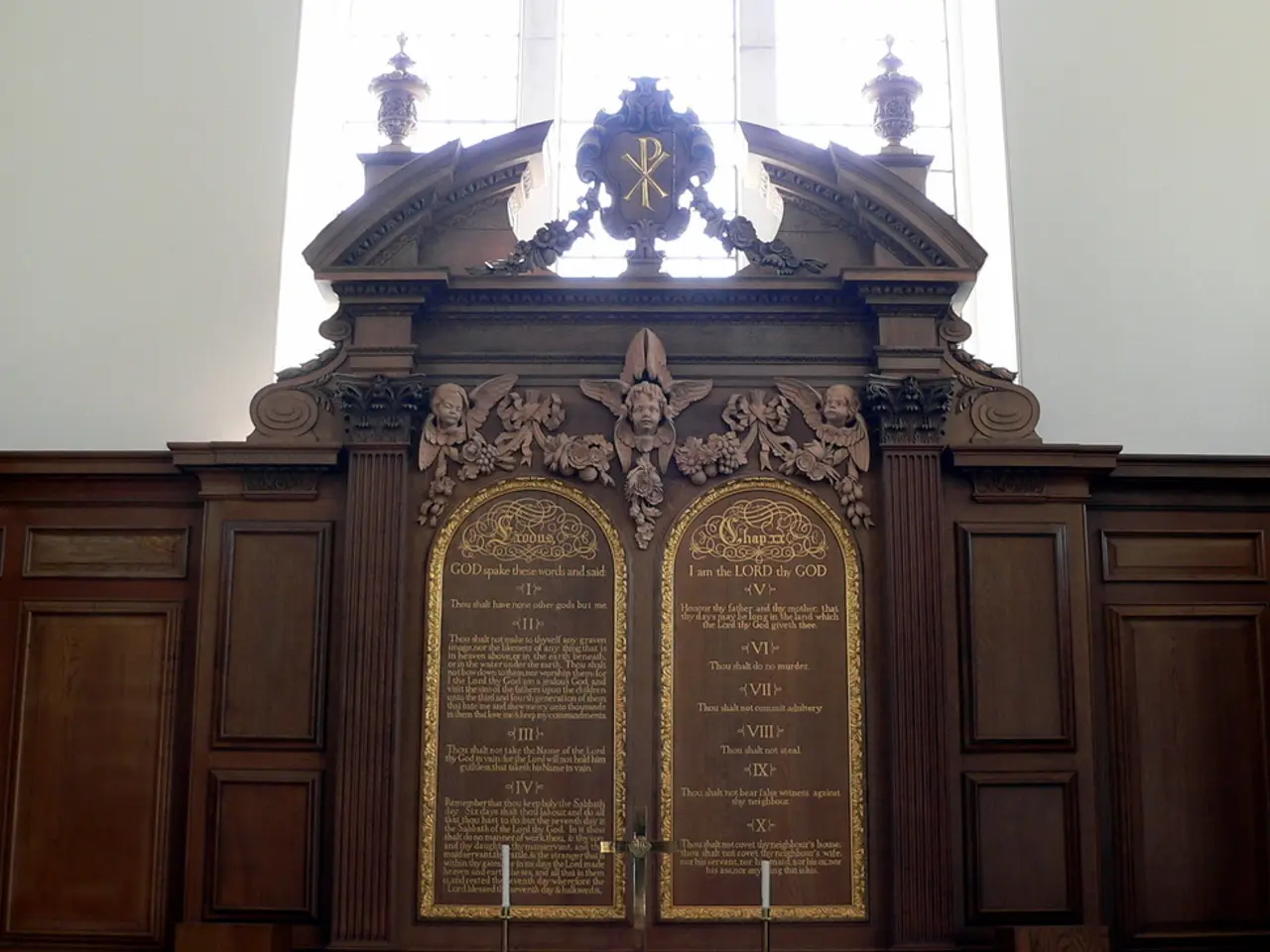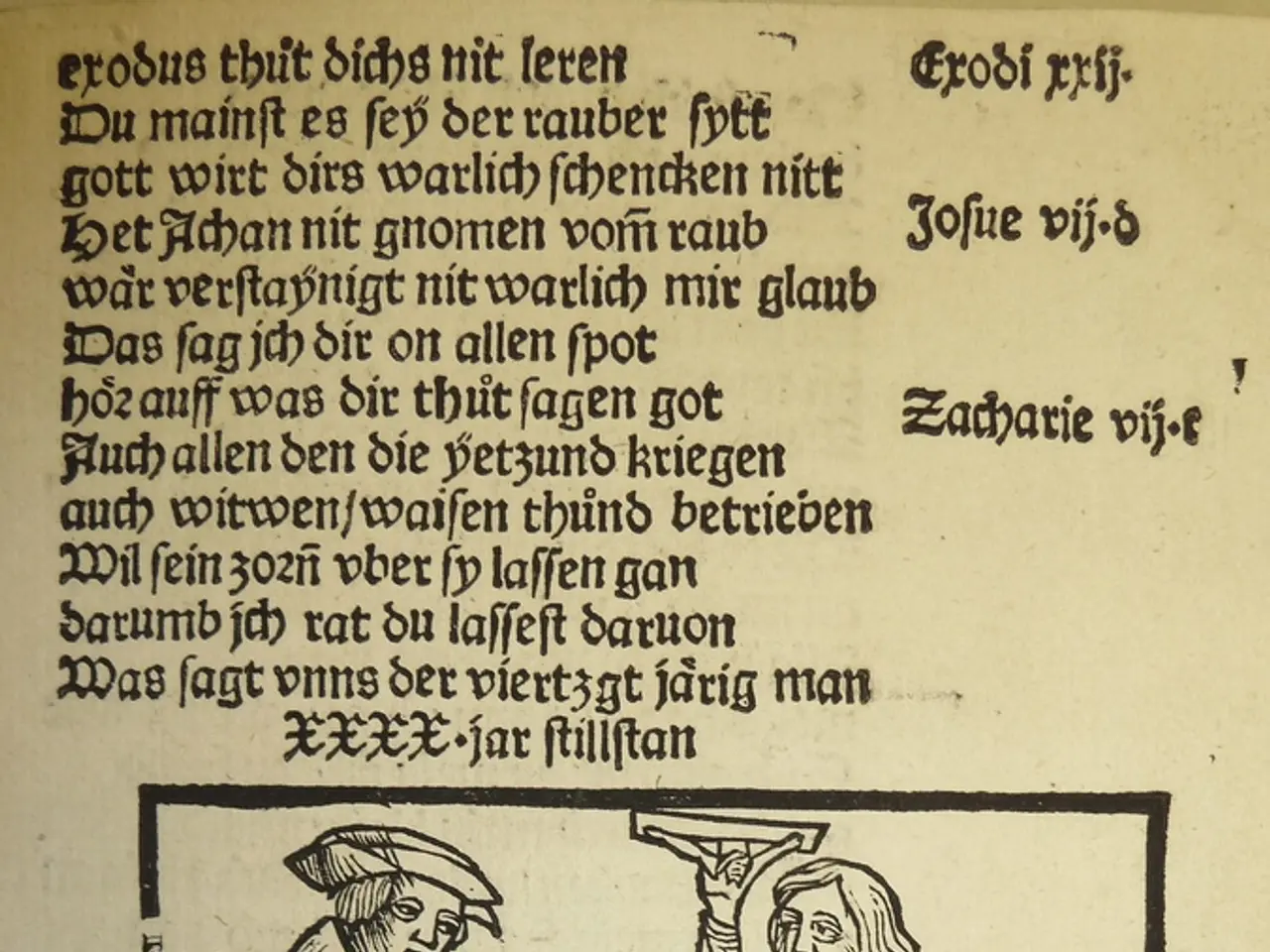Exploring the Legacy of Eléonore Biezunski in Brooklyn: Unveiling Old and Emerging Artifacts from Her Musical World of Heritage and Spirit
In a remarkable find, musician and sound archivist Eleonore Biezunski has unearthed a cassette tape featuring her great-grandfather, Yitzkhak Rozenbaumas, performing cantorial music. This discovery, made by Biezunski's mother, Isabelle Rozenbaumas, could represent a significant addition to the world of Jewish musical heritage.
Yitzkhak Rozenbaumas, a cantor, recorded elements of his cantorial repertoire on the cassette tape, helping to establish his professional identity. The tape includes performances of renowned pieces such as Yehi Rotson, Tsur Yisroel, and Kol Nidre.
For Biezunski, listening to the music on the tape is validating in her pursuit of an identity as a Jewish artist. She views the music and the fact of its existence as a concrete detail legitimating her experience of voices from the past singing with her.
Biezunki's work as an archivist is exemplary of one strand of the contemporary klezmer scene that embraces scholarly research and celebrates the work of a handful of elder representatives of Yiddish culture. Her music making also shares a quality as a reparative practice that engages the traumas of violence, displacement, and personal tragedy.
Biezunski's music, including her dynamic song Tshemodan (Yiddish, Suitcase), is a product of her sustained path as a musician. She is seeking a felicitous expression that embraces the potentials of music to tell multiple stories at once.
Biezunki's work promotes elements of Yiddish culture that are obscure or ephemeral and opens the potential for them to receive new life through creative practices. This is particularly evident in her incorporation of problematic family legacies into her music.
Moishe Rozenbaumas, Biezunski's maternal grandfather, was born in Memel (present-day Klaipeda) and grew up in Telz, Lithuania. He survived the Holocaust by escaping to the Soviet Union through a series of acts marked by daring, perseverance, and luck. The cassette tape of Yitzkhak singing was made during a reunion with Moishe after Yitzkhak moved to Israel, where he was already ill with cancer.
Biezunki grew up hearing Yiddish ballads from her grandmother, Rosa Rozenbaumas, and her mother, Isabelle Rozenbaumas, an accomplished Yiddishist, translator, historian, and documentary film maker. She also studied violin with Shifra Lipsky-Sluchin, a violinist, educator, and music therapist.
The cassette tape of Yitzkhak singing is a document of an ethically compromised relationship. Yitzkhak's life was marked by misfortune, including the loss of his money and abandonment of his family before the war, and the murder of every member of the family in the Holocaust, except for Moishe who escaped alone.
This discovery underscores the importance of preserving Jewish musical heritage and enhancing understanding of cantorial traditions. It provides insights into the cantor’s unique vocal style and repertoire, and could represent a rare or previously unknown archival recording of a cantor’s liturgical and musical art. For more detailed or verified information, one may consult sources directly related to Jewish music archives, Eleonore Biezunski’s publications or presentations, or institutions specializing in cantorial music preservation.
The cassette tape, containing Yitzkhak Rozenbaumas' performance of cantorial music, serves as an integral part of his professional identity as a musician. Biezunski, influenced by this discovery, finds solace and inspiration in the tape's music, seeing it as a connection to voices from the past that resonate with her own pursuit of Jewish identity in entertainment.







